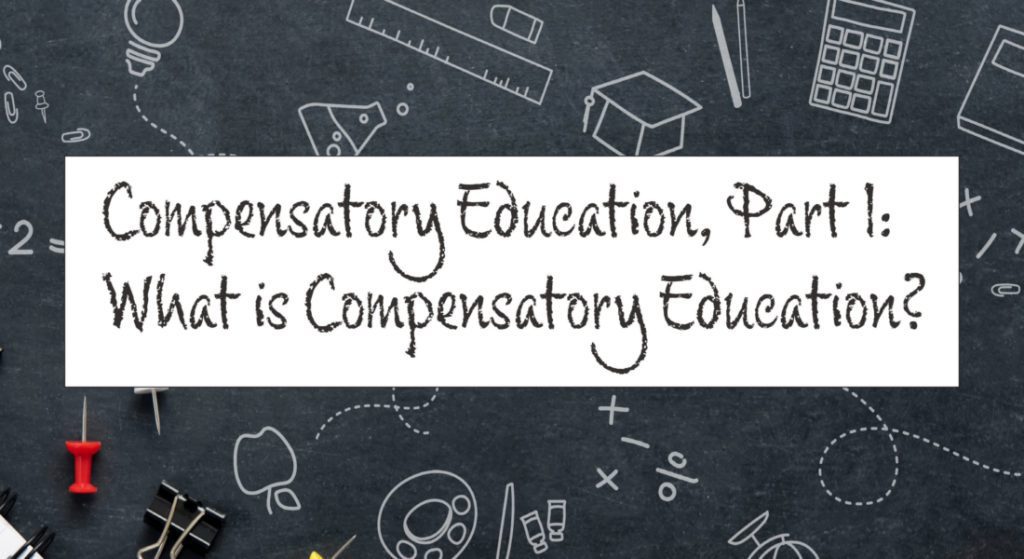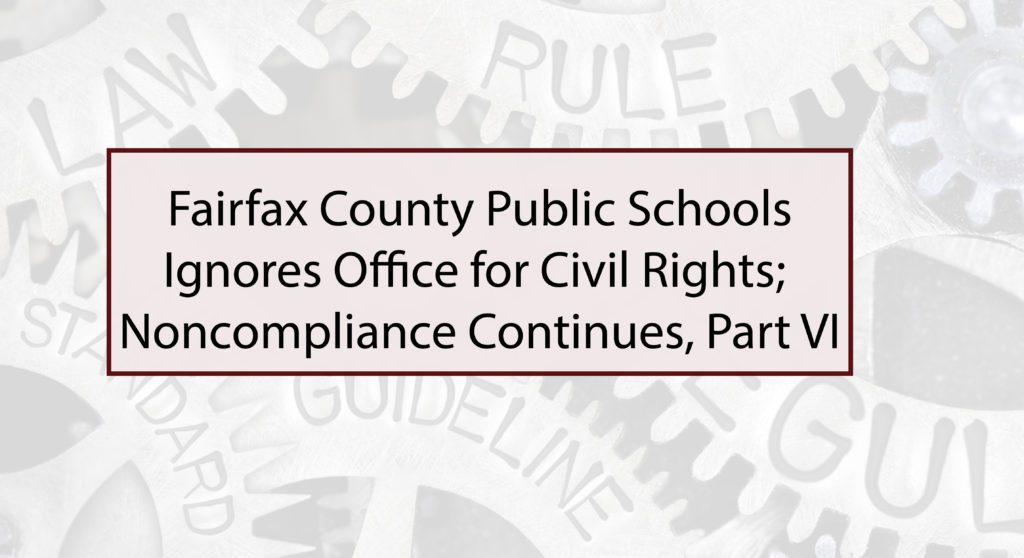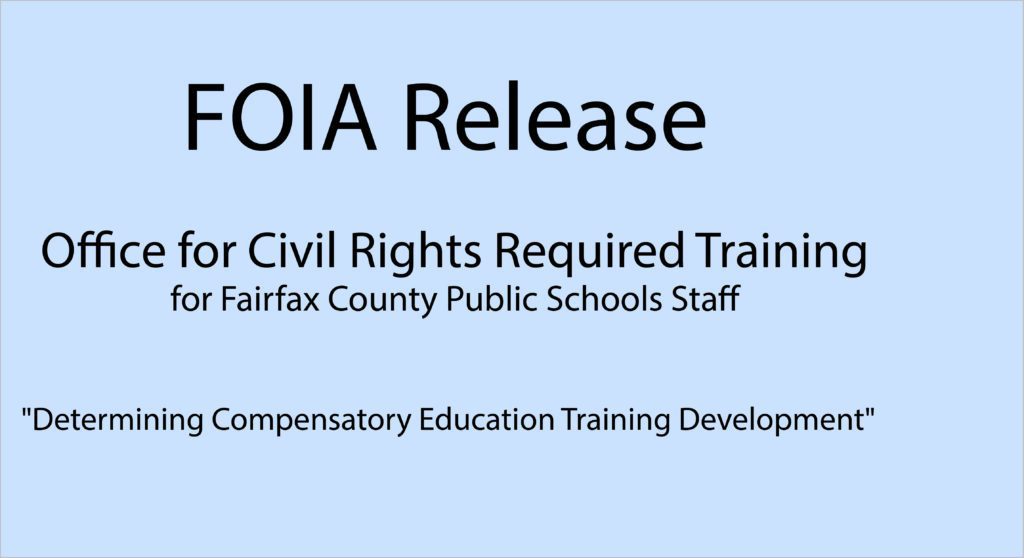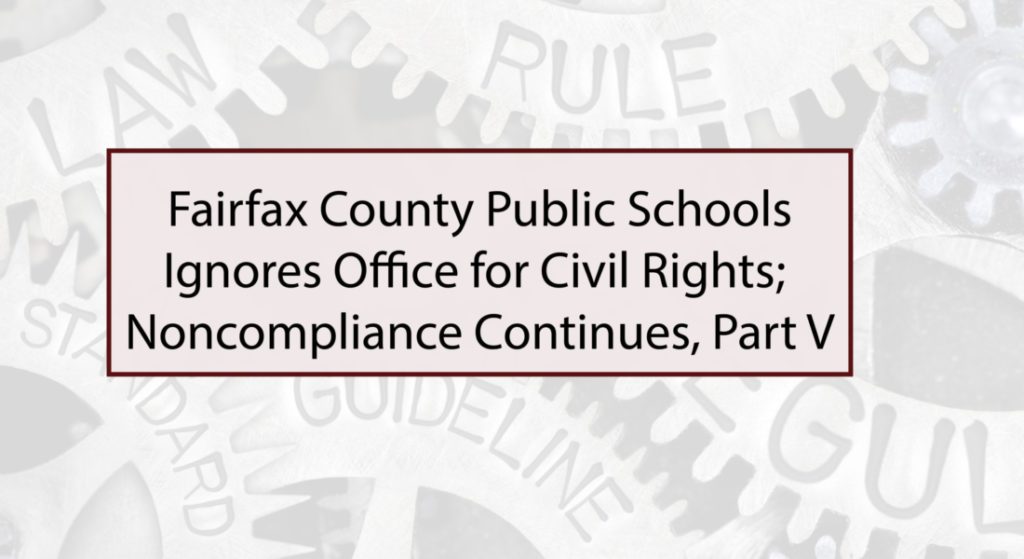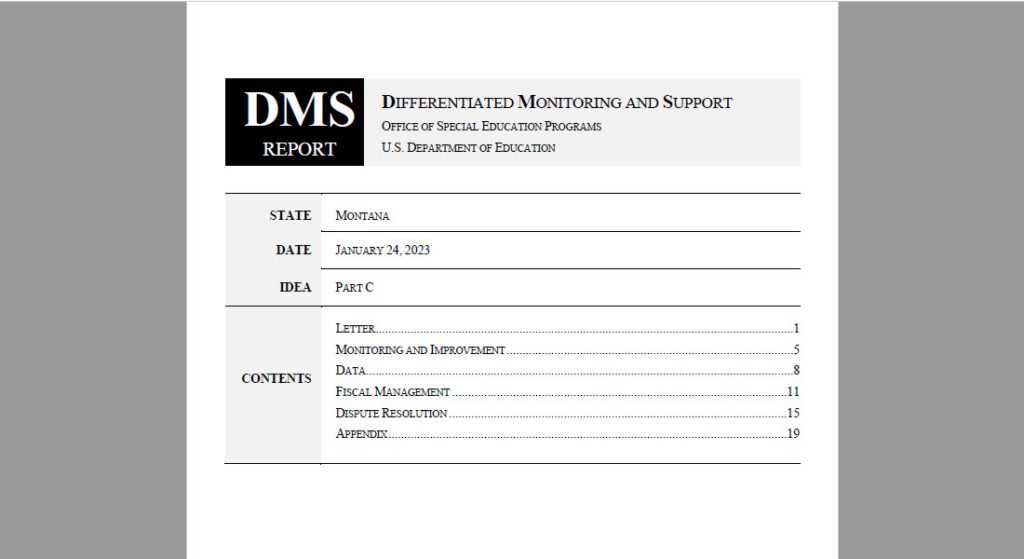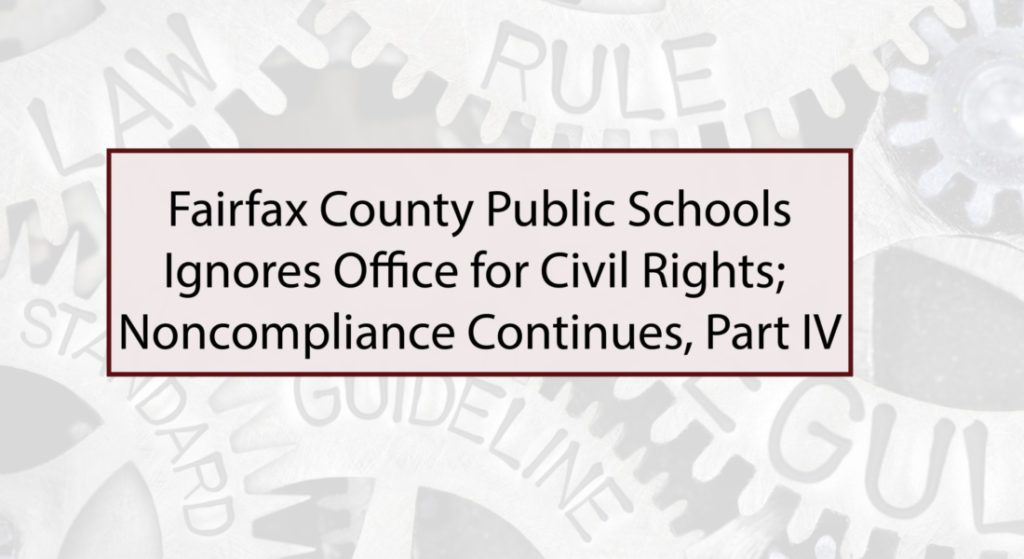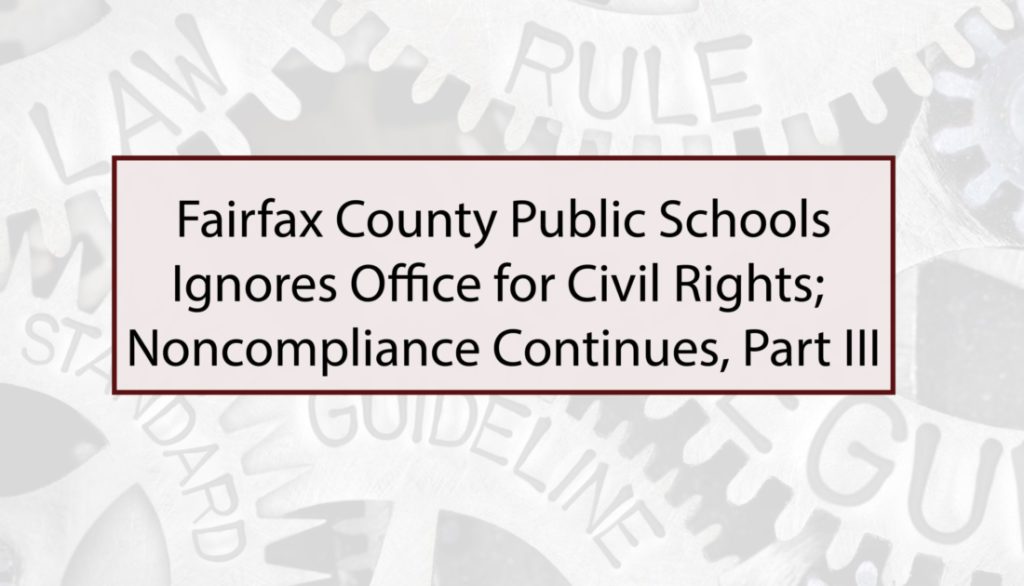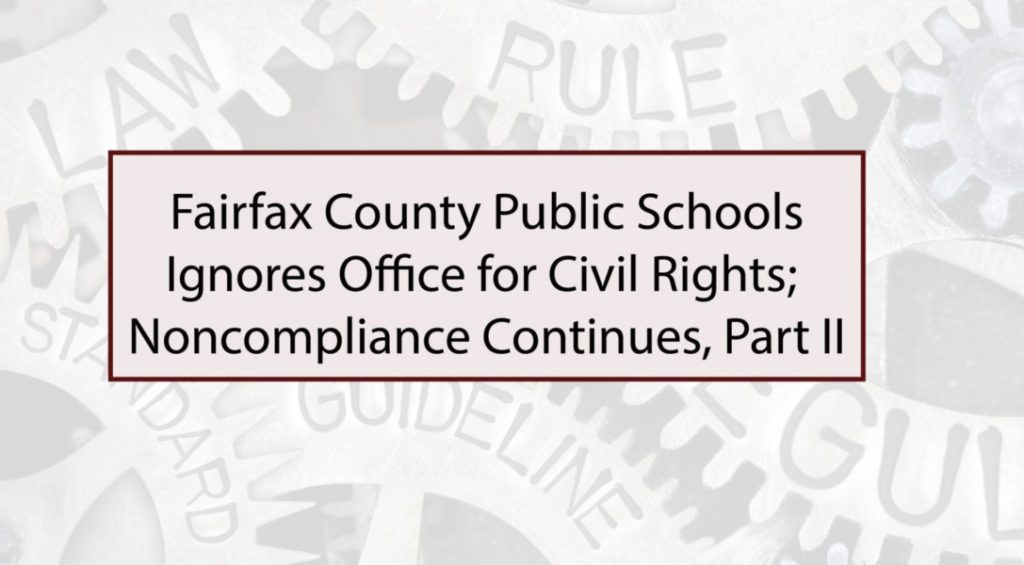U.S. Department of Education Office for Civil Rights FOIA Responses
Where to Find It: Where the Information is Hiding
This article will share some of my go-to places to obtain information. I’ll start with a few today and gradually update the list.
Compensatory Education, Part I: What is Compensatory Education?
In its fact sheet, titled “Providing Students with Disabilities Free Appropriate Public Education During the COVID-19 Pandemic and Addressing the Need for Compensatory Services Under Section 504,” USDOE Office for Civil Rights ( cited 34 C.F.R. § 104.6(a) and Barnes v. Gorman, 536 U.S. 181, 189 (2002) in support of the above definition.
FCPS Ignores Office for Civil Rights; Noncompliance Continues, Part VI
The focus of part V is FCPS’s failure to provide the related service of transportation.
The Problem with Compensatory Education? Too Often, Comp Ed Steals Music, Sports, Auto Tech, and Everything that Brings Happiness
When schools fail children, they end up having to provide compensatory education in return. In theory, it sounds great. The school district will make up for its errors, the student will receive help, all will be good. . . .
However, the reality is much different.
FOIA Release: Fairfax County Public Schools “Determining Compensatory Education Training Development” Training Videos and Materials Required by Office for Civil Rights
Office for Civil Rights found Fairfax County Public Schools in massive noncompliance for denial of FAPE during April 2020 through June 2022.
Following its investigation, OCR entered into a resolution agreement with FCPS. As part of the agreement, FCPS is required to meet with families of the 28,000+ students who were enrolled in FCPS during the time period investigated, to determine compensatory education.
In this article, you’ll be able to access some of the training materials and one of the training videos FCPS provided to staff.
FCPS Ignores Office for Civil Rights; Noncompliance Continues, Part V
The focus of part V is FCPS’s practice of equating provision of a computer with provision of a Free Appropriate Public Education—and then denying compensatory education.
What are Related Services?
Pay attention, because you might live in an area that doesn’t proactively propose related services in compliance with IDEA, Section 504, and/or implementing state regulations. Too often, my experience has been that if you don’t know to ask, they won’t be proposed.
Related services are supports required to assist a child with a disability to benefit from special education. This could be transportation to tutoring sessions, work with a speech therapist, assistive technology training for the parent and student, training parents to use sign language, providing special training to teachers working with students, and much more.
U.S. Dept. of Education Finds Montana in Noncompliance with IDEA
~United States Department of Education Office of Special Education Programs
United States Department of Education Office of Special Education Programs has found the state of Montana in noncompliance with Individuals with Disabilities Education Act.
FCPS Ignores Office for Civil Rights; Noncompliance Continues, Part IV
The focus of part IV is FCPS’s refusal to provide access to educational records, specifically “information recorded by the Division regarding the amount of special education, related aids or services provided during the Pandemic Period, including the option to review IEP or Section 504 service logs.”
Excel Did It; Teacher Attributes Curious Information in Comp Ed Tracking Spread Sheet to Auto-Population
November 30, 2022, Office for Civil Rights (OCR) publicly released its letter of findings about, and resolution agreement with, Fairfax County Public Schools (FCPS). One OCR finding focused on FCPS’s failure to track the provision of “recovery services” during the “COVID period” (April 2020–June 2022) investigated by OCR. We’d be splitting hairs if we tried to determine enormous differences between “recovery” and “compensatory” services, so for the purposes of this introduction, I’m lumping them together since there was no credible or reliable tracking system for either prior to COVID. OCR just took its time nailing FCPS for this issue.
OCR cited the following appalling anecdote about recovery services tracking in its 2022 findings:
“She also urged teachers “to be just really careful when” recording those services on students’ IEPs. As she went on to explain, after running “a SEA-STARS report,” the Division had found that for “60% of the students who ha recovery services on the services grid of their IEP, it was just a clerical error.”
What follows in this article provides an appalling example related to compensatory services tracking failures. In addition, it provides more proof that the problems for which OCR found FCPS in noncompliance had been years in the making. They weren’t unique to COVID.
FCPS Ignores Office for Civil Rights; Noncompliance Continues, Part III
The focus of part III is FCPS’s refusal to convene teams of knowledgeable committee members, its refusal to use and document data in compliance with IDEA and Section 504, and its refusal to ensure individuals with credentials to interpret data are in attendance at IEP or 504 Plan meetings.
Fairfax County Public Schools Ignores Office for Civil Rights; Noncompliance Continues, Part II
November 30, 2022, Office for Civil Rights released its letter of findings and resolution with FCPS. This followed OCR’s directed investigation of FCPS, which found massive noncompliance impacting over 25,000 students with IEPs or 504 Plans.
Yet, FCPS’s noncompliance—for the very issues identified by OCR—continues to occur almost three months after OCR made its findings and resolution public.
In Part II of this series, I address FCPS reducing, limiting & watering down services and instruction—and then its refusal to provide compensatory education to address this noncompliance.

